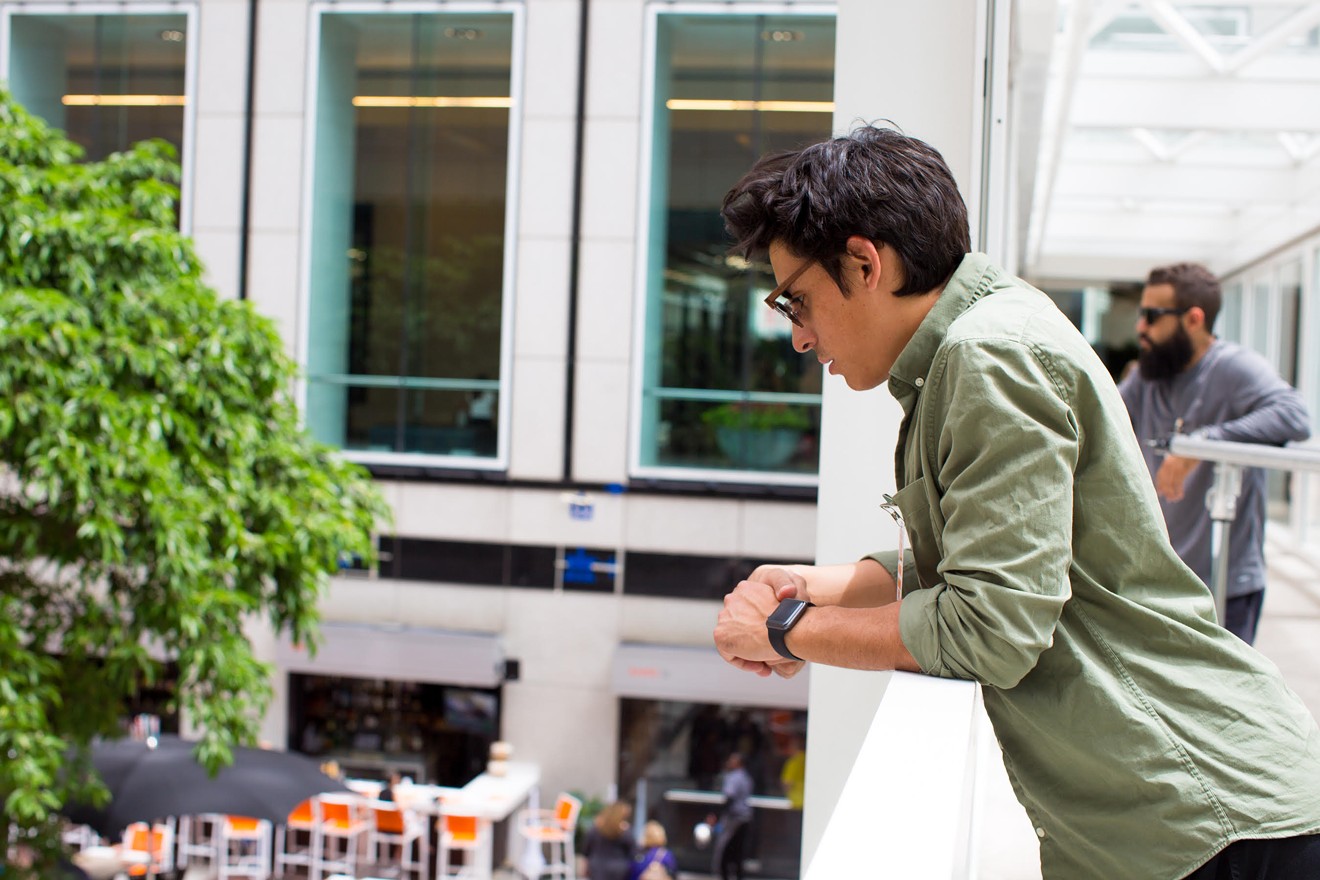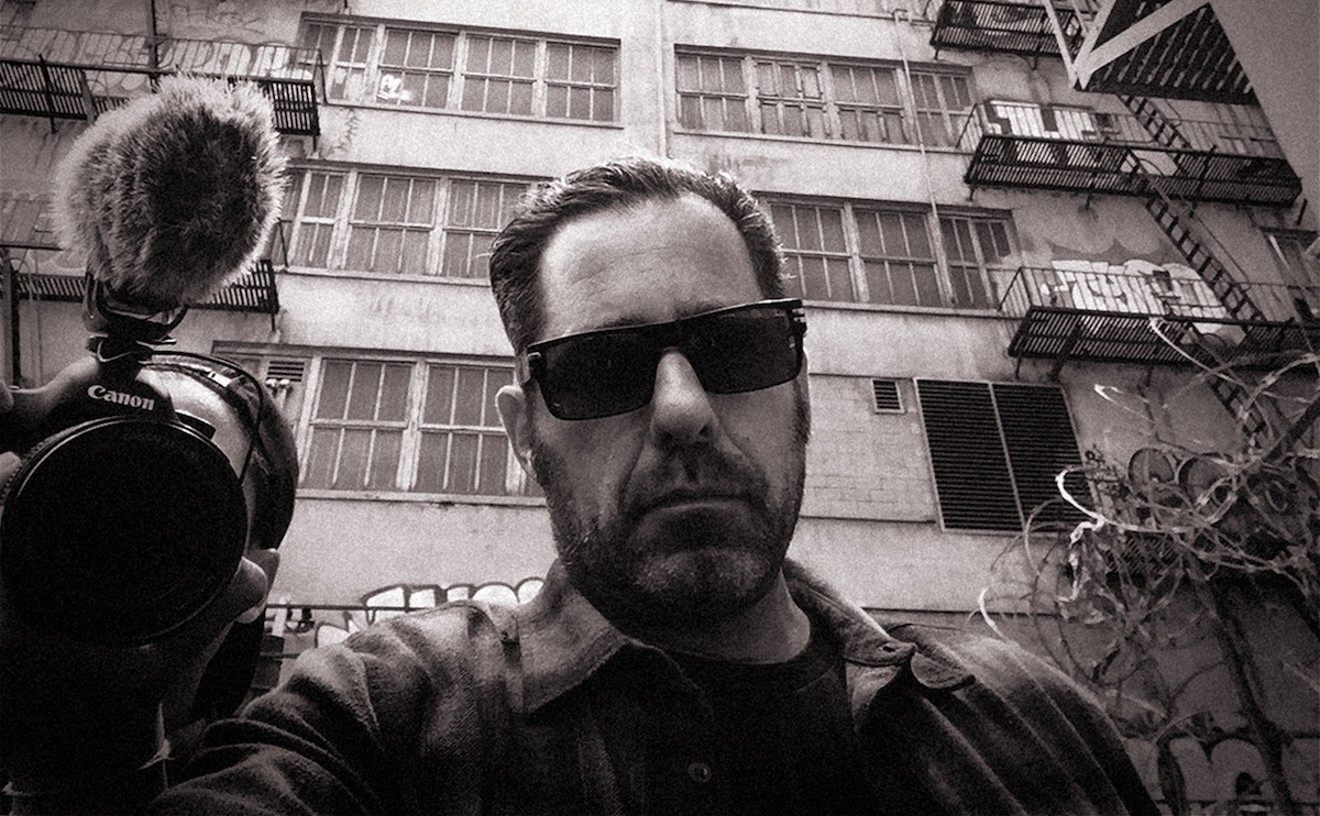That’s the question that inspired 26-year-old filmmaker Nicco Quiñones, son of ABC News correspondent and What Would You Do? host John Quiñones, to create Under the Influence, a video project documenting firsthand encounters of those who were directly and indirectly affected by the festival.
Fascinated by the failure of Fyre Fest, the Ja Rule-backed event with ticket packages costing up to $250,000 that collapsed in spectacularly viral fashion last spring, Nicco Quiñones began meeting with ticketholders and attendees of the festival, as well as the models who starred in its misleading ad campaign, social media experts, and journalists. (This reporter was interviewed for the project.) As he began conducting interviews for the film just days after the supposed festival was scheduled to have happened, Quiñones quickly realized the story he needed to tell was bigger than the festival itself.
"Every person we sat down and talked to thought they were going to talk to me about Fyre Festival. And when I transitioned the conversation to be about what this means from a cultural and sociological perspective, they started to have their own sort of epiphanies in the moment," he explains. "They really looked at why they went to Fyre Festival."
Although Quiñones had never given much importance to social media, he, like so many other millennials, admitted to having developed a dependency on the medium. But it wasn't until he spoke with Fyre Festival victims that he understood its power.
“For a long time, I always had these weird thoughts about social media that didn’t really connect,” he says. “It was something I couldn’t really put my finger on. And then, Fyre Festival came up as this perfect illustration for what I had been feeling: the idea that if you can just show people something they want to see, they’re hooked. I think it’s a story that absolutely needs to be told."
The concept of advertising to influence consumers' behavior has been around since the dawn of media, but social media, particularly Instagram, is proving to be even more influential on its targets than traditional ads. “I mean, I’m not particularly doomy and gloomy about advertising,” Quinoñes says. “Advertising has always been there. But this is new. This way of doing it is new. This way that we feel so personal about it. This way that we feel like we’re being led into someone’s life via their Instagram or their Snapchat, and we feel like they’re really one-to-one talking to us about what to do. We’re used to commercials, we’re used to radio ads, we’re used to these things, and that all doesn’t work on us anymore. So now, what’s this new one, and what does it mean?”
Through posts that are intentionally personal, aesthetically pleasing to the eye, and even encourage viewers to engage directly with the posts, marketers on Instagram can easily influence just about anyone — and Fyre Festival is a prime example. Its organizers spent thousands of dollars to produce a marketing campaign filled with beautiful models on yachts off the island of Grand Exuma in the Bahamas. The attractive campaign even caught the eye of Quiñones himself.
“I saw this advertisement for Fyre Festival and, I mean, it worked on me,” he says with a grin. “I’m not even into music festivals, but I thought it looked really cool. It seemed like something that was definitely real.”
The festival, which was organized by founder Billy McFarland and rapper Ja Rule, was promoted on Instagram by social media influencers and models such as Kendall Jenner, Emily Ratajkowski, and Bella Hadid. Those three names alone have a combined total of more than 111 million followers on Instagram. The stars have Instagram's coveted blue check mark next to their handles, but the goods and services they promote aren't necessarily verified. Social media advertising is largely unregulated, making Instagram and its ilk easy to abuse.
“The story isn’t, ‘It’s such a big deal that these rich kids went to a music festival and it didn’t work out!’ The story is, ‘What happens when influencers are telling us what to inject in our faces, telling us where to go, and telling us which flights to book?'" Quiñones wonders. "Fyre Festival wasn’t dangerous. But what happens when something is? What would have happened if the festival had gone south in a serious way?”
Although no attendees reported serious injuries, those who purchased tickets spent thousands of dollars on a festival that was supposed to span two weekends in April and May and even required airfare and housing. As a result, the organizers are the subject of numerous lawsuits accusing them of defrauding ticket buyers. This past June 30, the U.S. attorney for the Southern District of New York charged McFarland with one count of wire fraud.
But Fyre Festival was still a success — just not in the way its organizers had hoped. “Fyre Festival, which ended up falling apart, was supposed to be full of content to record for social media,” Quiñones says. “And even though the event ended up not existing, they still gave people just as much content to record... Fyre Festival still did what it was
Quiñones is shopping the project to producers, and intends to expand it into a documentary feature or a series, in which he will continue interviewing the influencers, the influenced, and every person in between. Visit quinonesproductions.com.












